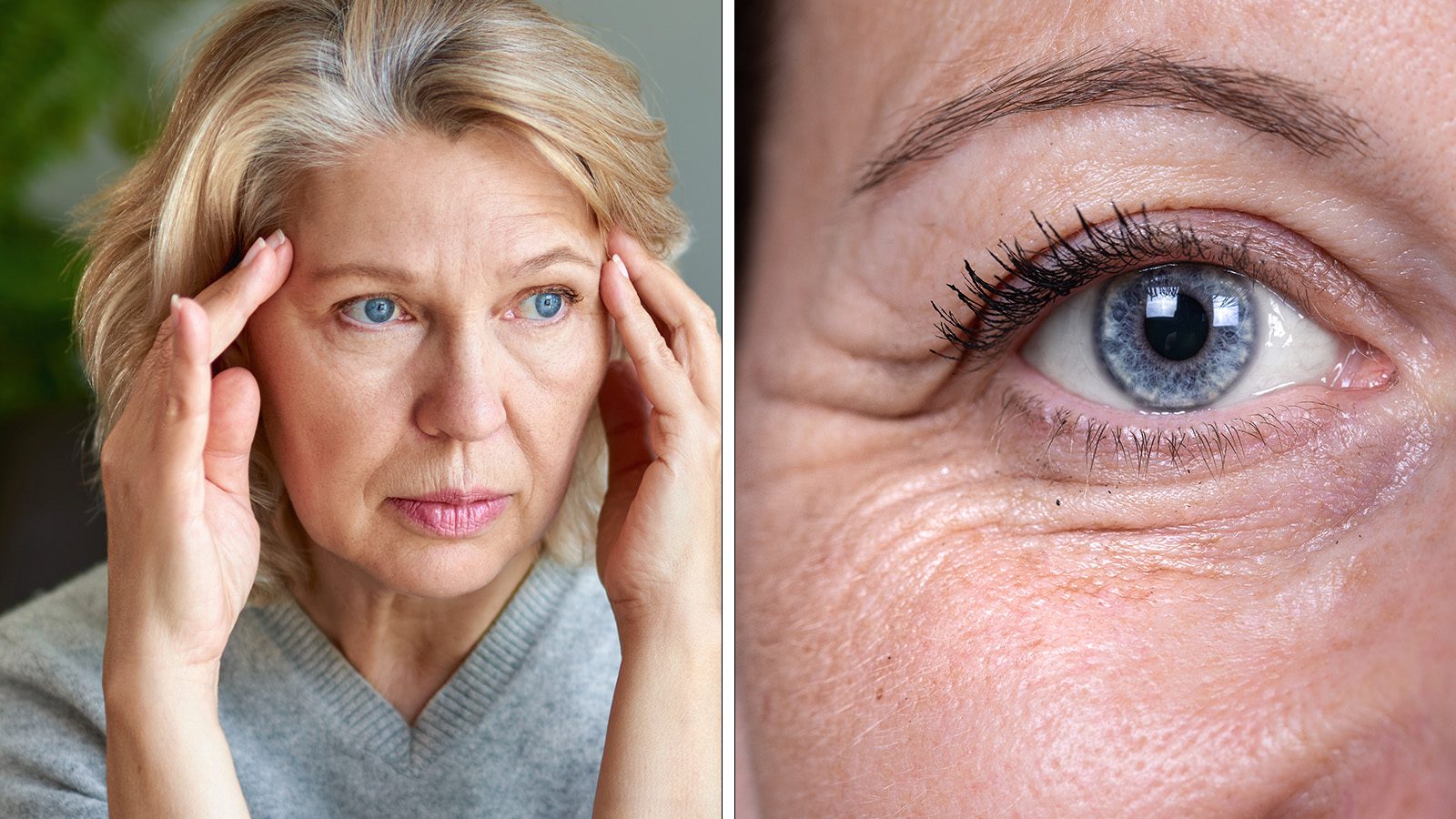Here’s what excessive stress can do to your skin.
Have you ever looked in the mirror and wondered if your skin reveals more than your age? In today’s fast-paced world, stress is an inescapable part of our lives. But did you know that the stress you feel might be playing a bigger role in how your skin looks, especially in regard to unwanted wrinkles
Stress, a familiar foe in our daily lives, is not just a mental or emotional burden. It can leave tangible imprints on our physical well-being, with one of the most visible markers being our skin. When stressed, our bodies enter a “fight or flight” mode. Thus, they release hormones like adrenaline and cortisol. These hormones are crucial in managing stress but also profoundly impact our skin’s health and appearance.
Get ready to dive even deeper into the science behind those lines on your face and learn how managing stress can lead to healthier, more youthful-looking skin.
The Science Behind Stress and Wrinkles
When we talk about the effects of stress on the skin, especially in the context of wrinkle formation, the story begins deep within our bodies, at a hormonal level. Chronic stress leads to a cascade of hormonal changes, notably increased cortisol production. Cortisol, often termed the ‘stress hormone,’ plays a pivotal role in the skin’s health and aging process. Let’s unpack this complex relationship to understand how stress can lead to those lines and creases on our skin.
Chronic Stress and Cortisol Overdrive
Under normal circumstances, cortisol helps us manage stress by preparing the body for a fight-or-flight response. However, in chronic stress, cortisol levels can remain elevated for extended periods. This prolonged elevation has significant implications for our skin. Cortisol’s prolonged presence disrupts normal skin function. It can lead to various skin issues. These can include such conditions as inflammation, acne, and accelerated aging. Inflammation is particularly detrimental as it can break down the proteins that keep our skin smooth and elastic.
Cortisol’s Impact on Collagen and Elastin
The story of wrinkles is closely tied to two key proteins in our skin: collagen and elastin. These proteins are crucial in maintaining the skin’s structure and elasticity. Collagen provides strength and firmness, while elastin allows your skin to return to its original shape after stretching or contracting.
Research has shown that high cortisol levels negatively affect the production of these vital proteins. The effect of cortisol on the skin’s collagen and elastin production has been a research topic in many studies. Chronic elevation of cortisol results in a decrease in the synthesis of collagen and elastin. This reduction in those proteins leads to a loss of skin elasticity. Therefore, it becomes more prone to wrinkling and sagging.
The Aging Accelerator
The cumulative effect of prolonged cortisol elevation is akin to putting the skin’s aging process into fast-forward. In addition to decreasing collagen and elastin production, cortisol can also thin the skin, making it more fragile and less capable of repairing itself. The thinning of the skin also makes wrinkles more pronounced.
This complex interplay between stress, cortisol, and skin aging underscores the importance of managing stress for skin health. By understanding how our body’s response to stress contributes to the aging process, we can take proactive steps to mitigate these effects. In the following sections, we’ll explore ways to manage stress and support our skin’s health, aiming for a complexion that reflects our inner calm and resilience.
Stress-Induced Behavioral Factors Contributing to Skin Aging and Wrinkles
Stress affects our skin not only directly through hormonal changes but also indirectly by influencing our behaviors. Certain stress-induced behaviors, such as smoking, poor diet, and inadequate sleep, can significantly exacerbate skin aging and the formation of wrinkles. Let’s delve into how these behaviors contribute to skin aging and why it’s crucial to address them.
The Impact of Smoking on Skin Wrinkles
Smoking is a common stress response for some people. However, its impact on skin health is profoundly negative. According to a study by the American Skin Association, smoking accelerates skin aging in several ways. The chemicals in tobacco smoke can harm collagen and elastin, leading to increased skin sagging and wrinkle formation. Smoking also constricts the blood vessels and reduces the blood flow to the skin. As a result, it deprives the skin of essential nutrients and oxygen, leading to a dull, aged appearance.
How a Poor Diet Affects Your Skin and Causes Wrinkles
Stress often leads to unhealthy food consumption habits, such as increased consumption of high-sugar, high-fat, and processed foods. These dietary choices can be detrimental to skin health. Most doctors agree that a diet lacking essential nutrients and antioxidants can hasten the skin’s aging process. Poor nutrition can lead to decreased collagen production and even more oxidative stress, leading to wrinkles and a lackluster skin complexion.
The Role of Inadequate Sleep in Skin Aging
Lack of sufficient sleep is another common side effect of stress. The National Sleep Foundation points out that during sleep, the body goes into repair mode, regenerating skin, muscles, blood, and brain cells. This repair process is hindered without adequate sleep, leading to those visible signs of aging like fine lines or wrinkles, reduced skin elasticity, and uneven skin tone. Additionally, lack of sleep can exacerbate stress, creating a vicious cycle that further impacts skin health.
Addressing Stress-Induced Behaviors
Understanding the link between these behaviors and skin health is essential. Addressing stress-induced habits like smoking, poor diet, and inadequate sleep can help mitigate their detrimental effects on your skin. Incorporating healthier lifestyle choices can improve your overall well-being and also aid in maintaining youthful, healthy skin.
Addressing Stress to Improve Skin Health
Tackling stress is not just about feeling better mentally; it’s also about taking care of your skin. By adopting certain practices and lifestyle changes, you can effectively manage stress and thereby promote healthier, more youthful-looking skin. Here are some actionable tips to help you reduce stress and support your skin’s health.
Embracing Mindfulness and Relaxation Techniques
- Meditation: Meditation is a potent tool for reducing stress. The National Center for Complementary and Integrative Health explains that meditation can help reduce stress by enhancing relaxation and improving emotional well-being. Even just a few moments of daily meditation can make a significant difference.
- Yoga: Yoga, which combines physical postures with breathing exercises and meditation, is an additional effective way to manage stress. The American Osteopathic Association highlights that yoga can decrease cortisol secretion, improve mood, and enhance overall well-being.
- Deep Breathing Techniques: Deep breathing exercises may help calm the mind and reduce stress. The American Institute of Stress recommends trying deep breathing. That’s because it is a simple yet powerful relaxation technique to reduce tension and stress.
Maintaining a Healthy Lifestyle
Here are some tips to help you manage your stress levels. Thus, you can better fend off unwanted wrinkles:
- Balanced Diet: Eating a menu laden with fruits, vegetables, whole grains, and lean meats can improve skin health. The Academy of Nutrition and Dietetics explains how a balanced diet provides most of the essential nutrients that help the skin repair itself and stay healthy.
- Adequate Hydration: Keeping yourself well-hydrated is crucial for maintaining skin health. Proper hydration helps to maintain skin moisture and elasticity, reducing the likelihood of wrinkles.
- Proper Sleep: Ensuring quality sleep is vital for skin health. The Cleveland Clinic affirms that during sleep, your body repairs and regenerates skin cells. Try to get approximately seven to nine hours of sleep per night to support these natural processes.
Incorporate these stress-reduction techniques into your daily life for long-term benefits. Consistency is key; even small changes can significantly impact over time. Remember, by caring for your mental health, you’re also nurturing your skin health, leading to a happier, healthier you.
Final Thoughts on the Connection Between Stress and Wrinkles
In wrapping up our exploration of the link between stress and skin wrinkles, it’s clear that stress is more than just a mental challenge. Indeed, it has tangible effects on our physical health, particularly our skin. We’ve learned that chronic stress leads to increased cortisol production, resulting in skin inflammation, acne, and accelerated skin aging. The hormonal upheaval caused by prolonged stress disrupts the balance of key proteins like collagen and elastin, essential for maintaining skin elasticity and youthfulness.
Moreover, stress-induced behaviors such as smoking, poor diet, and lack of sleep can further worsen wrinkles and skin aging. Addressing these behaviors and adopting stress management techniques is vital for mental well-being and maintaining healthy, youthful skin.
The importance of stress management for overall wellness and skin health cannot be overstated. Practices like meditation, yoga, and deep breathing, combined with a healthy lifestyle – balanced diet, proper hydration, and adequate sleep. Each of these play a crucial role in skin health.
Understanding and managing the stress in our lives is essential for mental peace and our skin’s health and appearance. Integrating stress-reducing practices and healthy habits into our daily routines can nurture our minds and bodies, making way for a healthier, more radiant complexion.


















